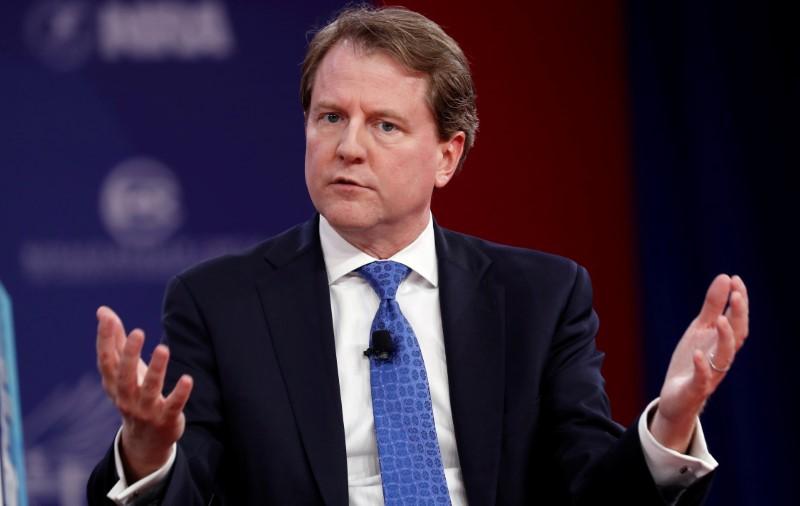A federal appeals court has approved a request from the U.S. House of Representatives for a new hearing in their effort to compel former White House counsel Don McGahn to testify before Congress.
The full panel of the U.S. Court of Appeals for the District of Columbia granted the House Judiciary Committee’s petition for rehearing en banc—or before the full court—in an order on Friday (pdf), just two weeks after a three-judge panel ruled that McGahn did not have to comply with the committee’s subpoena. Friday’s order also vacates the previous ruling issued on Feb. 28 (pdf).
McGahn, who was viewed as a key witness in then-special counsel’s Robert Mueller’s Russia investigation, was subpoenaed by the committee in April to provide documents and appear before lawmakers as part of the investigation into alleged obstruction of justice by President Donald Trump—something that Mueller failed to establish in his investigation. Trump has denied any wrongdoing.
A hearing or rehearing before the full court, or en banc, is not ordinarily ordered unless “en banc consideration is necessary to secure or maintain uniformity of the court’s decisions” or “the proceeding involves a question of exceptional importance.”




